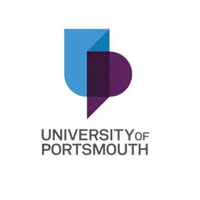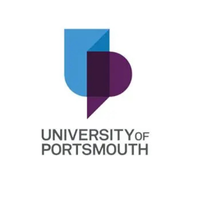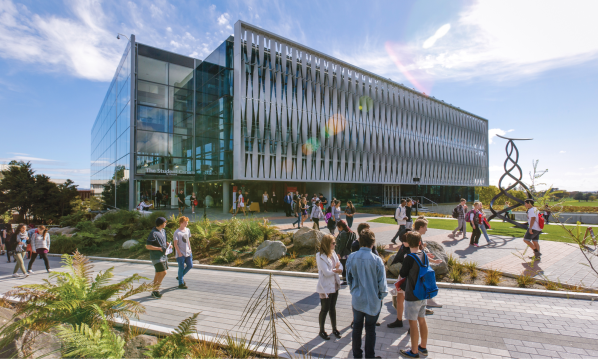About
This master’s programme develops advanced skills in both electrical and electronic engineering. It’s designed to address contemporary challenges in the sector — from power systems to electronic design — by combining theory, hands‑on practice, and project work. Graduates will be well‑prepared for senior or specialist roles in industry, product design, research, or further engineering credentials.
Apply Now
University of Portsmouth
Main campus: Portsmouth, England, United Kingdom401-500
University of Portsmouth
Key information
Duration
Full-time
1 year
Start date & application deadlines
Starting Date
June
July
Language
English
Credits
Delivered
On Campus
Campus Location
Portsmouth, United Kingdom
Disciplines
Engineering & Technology
Explore more key information Visit programme website
Overview
This programme is designed to deepen your expertise in both electronic and electrical engineering, covering areas such as electrical power systems, sensors & measurement, electronics design, and machines & drives. University of Portsmouth+1 It’s accredited by the Institution of Engineering and Technology (IET) and meets UK‑SPEC and EUR‑ACE standards for progression towards Incorporated Engineer (IEng) or Chartered Engineer (CEng) status. University of Portsmouth+2WeUni+2 You’ll gain hands‑on experience via laboratory work and a substantial individual project, using modern tools, simulation software, and real‑world design / implementation tasks. University of Portsmouth+1 The course is available full‑time or part‑time (with start dates in September and in some cases January) allowing flexibility. University of Portsmouth+1 Graduates are well placed for roles in product design, power or aerospace industries, R&D, or advanced technical / managerial positions.
Programme Structure
Core Curriculum (Electronic & Electrical Engineering MSc)
-
Individual Project / Research Project
-
Research Methods and Professional Skills
-
Advanced Power Electronic Converters and Devices
-
Electrical Machines and Drives
-
Sensors and Measurement Systems
-
Power Systems Technology
-
Embedded Systems / IoT and Embedded System Practice
-
Advanced Electronic Systems
Academic requirements
Here is grading score requirements for this programme.
English requirements
Tuition Fee
Here’s what we charge for tuition.
The living costs include the total expenses per month, covering accommodation, public transportation, utilities (electricity, internet), books and groceries.
Scholarships Information
As you're from Bangladesh, the scholarships below match your eligibility.
Available Scholarships
You are eligible to apply for these scholarships but a selection process will still be applied by the provider.
Visa information
Student Visas for the United Kingdom
Are you from Bangladesh? You might need a student visa...
Don’t worry, everything is ok. We’re on it, and we’re doing all we can to make your search for the right international degree in the United Kingdom a little easier and more enjoyable. Still, while we’re catching up, you can always beat us to it and:
-
Check if you really need a student visa.
Since you’re from Bangladesh and planning full-time academic study in the UK, yes, you’ll definitely need a student visa. -
Start exploring the official UK government website.
For Bangladeshi applicants, the British High Commission in Dhaka handles student visas. That’s where all the latest and most reliable information lives. Bookmark it, read it, reread it. -
Check the deadlines.
The visa process can take several weeks, and missing a step or delaying your appointment could mean missing the start of your semester. Not the kind of plot twist you want. -
Go on a paperwork treasure hunt.
Passport?
Confirmation of Acceptance for Studies (CAS) from your UK institution?
Visa application form, proof of accommodation, bank statements, English language test results, tuberculosis test results, academic transcripts… yes, the list is long. And yes, you’ll need every single piece. -
Start saving up.
You’ll need to show you can financially support yourself while studying in the UK. That means proving you can cover tuition, living expenses, travel, visa fees, and maybe even your weekend cups of tea. -
Boost your English skills.
Even if you’ve already taken IELTS, TOEFL, or other English tests - it never hurts to keep improving. Strong English skills help at your visa interview and make life in the UK so much easier.
All in all, getting your UK student visa might feel like a lot but it’s one big step toward an even bigger adventure.
Thanks and good luck!
Work Permit
Find out all you need to know about work permit regulations for studying part-time (during studies) and full-time (after studies) in the United Kingdom.
Work while studying in the United Kingdom
If you’re an international student, you may need specific visa conditions to combine studying with working in the UK.
How can I apply?You do not need a separate work permit. Work rights are usually included with your Student visa. |
Application requirements
|

Duration of work permitThe work rights are valid as long as you remain enrolled in your course and hold a valid Student visa with work conditions. |
Maximum hours of work per week
|
|
Required documents
|






